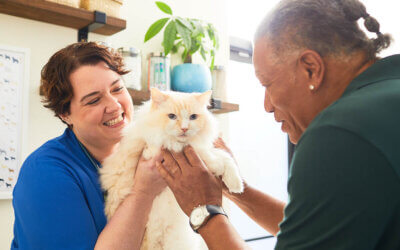When COVID-19 started hitting the New York area hard, we weren’t sure how Long Island Bird and Exotics Veterinary Clinic would be affected. Would people continue to want to bring their pets in for emergency visits? What about routine appointments?
We’ve found the answer to both of these questions to be a resounding yes.
Our practice is busier than ever, and we have worked hard to make changes to how things run to maintain the safety of our staff, animals, and owners.
5 ways COVID-19 and Rabbit Hemorrhagic Disease Virus Type 2 changed our practice
1: Elective surgery waitlist
 We have unfortunately had to turn many pet owners away as there just is not enough time in the day to see everyone and resources are limited. We now have a waitlist for all elective surgeries, spays and neuters specifically, and we have not been able to book our usual grooming, boarding, and wellness appointments.
We have unfortunately had to turn many pet owners away as there just is not enough time in the day to see everyone and resources are limited. We now have a waitlist for all elective surgeries, spays and neuters specifically, and we have not been able to book our usual grooming, boarding, and wellness appointments.
Unfortunately, most of the time we have to say no to these appointment requests since we can only fit about a handful of wellness appointments within each week. This is mainly due to the fact that we’re limited by supplies not being available.
There’s been a massive shortage of equipment and items we need for our appointments. Supplies we require have been back-ordered for weeks, if not months.
2: Time blocked off for emergencies
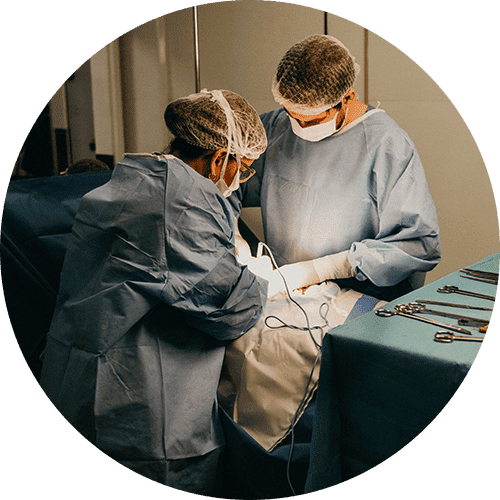 Our general hours of operation have remained the same, and we are doing our best to see as many appointments as we can.
Our general hours of operation have remained the same, and we are doing our best to see as many appointments as we can.
However, our doctors and techs are still only human. We’re seeing as many patients as we can without compromising the quality of our care.
One way to ensure that the animals in greatest need of care are seen is to specifically block time off each day in case of emergency surgeries. Unfortunately, due to COVID-19, we had to stop our 24-hour emergency services.
3: Masks and ventilators
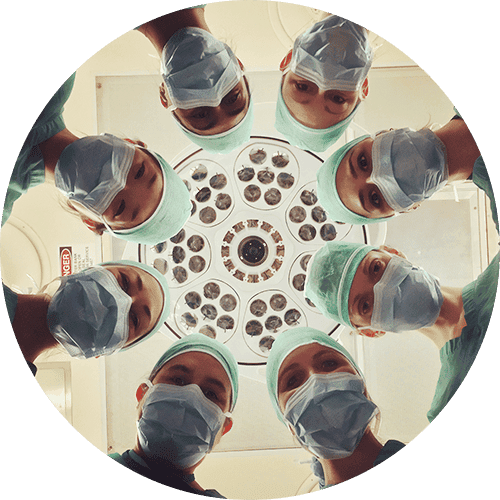 We’re taking extra cleaning precautions in our daily routine. We have all been wearing masks, with each staff member having their own washable, reusable ones. Most of these we’ve made on our own as we had to save the surgical masks for operations.
We’re taking extra cleaning precautions in our daily routine. We have all been wearing masks, with each staff member having their own washable, reusable ones. Most of these we’ve made on our own as we had to save the surgical masks for operations.
We offered our ventilators to NY Presbyterian Hospital to help at the beginning of COVID-19 and they kindly turned us down, as the ventilators are too small even for their NICU patients. They also found it extremely interesting as to what type of animals we were using them for!
4: Appointment protocol changes
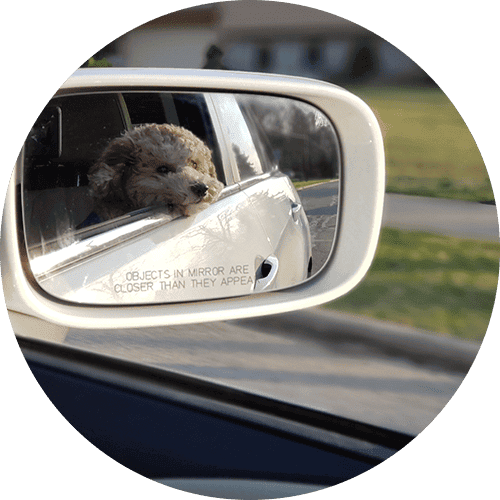 All owners wait outside in the comfort of their own vehicles and we bring their pets in for their exams. The animal is taken directly to the examination room. We’re not having anyone in the building unless there’s a critical reason they need to be in here. Once we’ve done our examinations, the doctors head outside to speak with the owners. All payments are being taken over the phone.
All owners wait outside in the comfort of their own vehicles and we bring their pets in for their exams. The animal is taken directly to the examination room. We’re not having anyone in the building unless there’s a critical reason they need to be in here. Once we’ve done our examinations, the doctors head outside to speak with the owners. All payments are being taken over the phone.
We used to have techs speak with the owners during the appointment about diet and husbandry, and any concerns they might have. We instead have been calling owners prior to the appointment to get this information, so that when they come in for the appointment there’s already been an updated history taken down. This expedites the appointment and allows the doctor to immediately begin the exam. It has allowed us to schedule more appointments each day to accommodate our patients.
“We’ve found that while owners tend to be stressed out about not being in the clinic with their pets, the animals are usually fine and can sense that they’re in good hands. ”
5: Extra caution for rabbit appointments
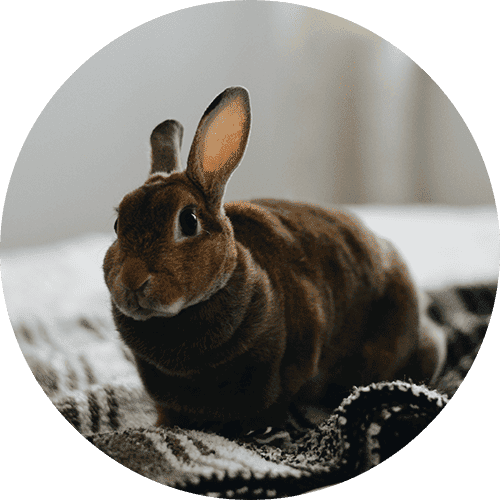 COVID-19 coincided with an outbreak of Rabbit Hemorrhagic Disease Virus Type 2, a disease that is extremely dangerous to rabbits but does not affect people or other animals.
COVID-19 coincided with an outbreak of Rabbit Hemorrhagic Disease Virus Type 2, a disease that is extremely dangerous to rabbits but does not affect people or other animals.
While we’re still seeing rabbits, we’re extremely cautious about treating them and noticing signs of the virus. If we think an owner is describing symptoms of the virus in their rabbit, we’ll send them to a dog or cat clinic instead.
Bottom line — Patients come first
While we don’t know when things will go back to normal, or what “normal” will even look like, our priority continues to be the well-being of our animals.
We’ll continue to be very cautious about how we run our clinic and maintain safety protocols.
We’d love to hear from you: What adjustments has your practice made due to COVID-19? How is your staff holding up? What reactions are you getting from clients?

